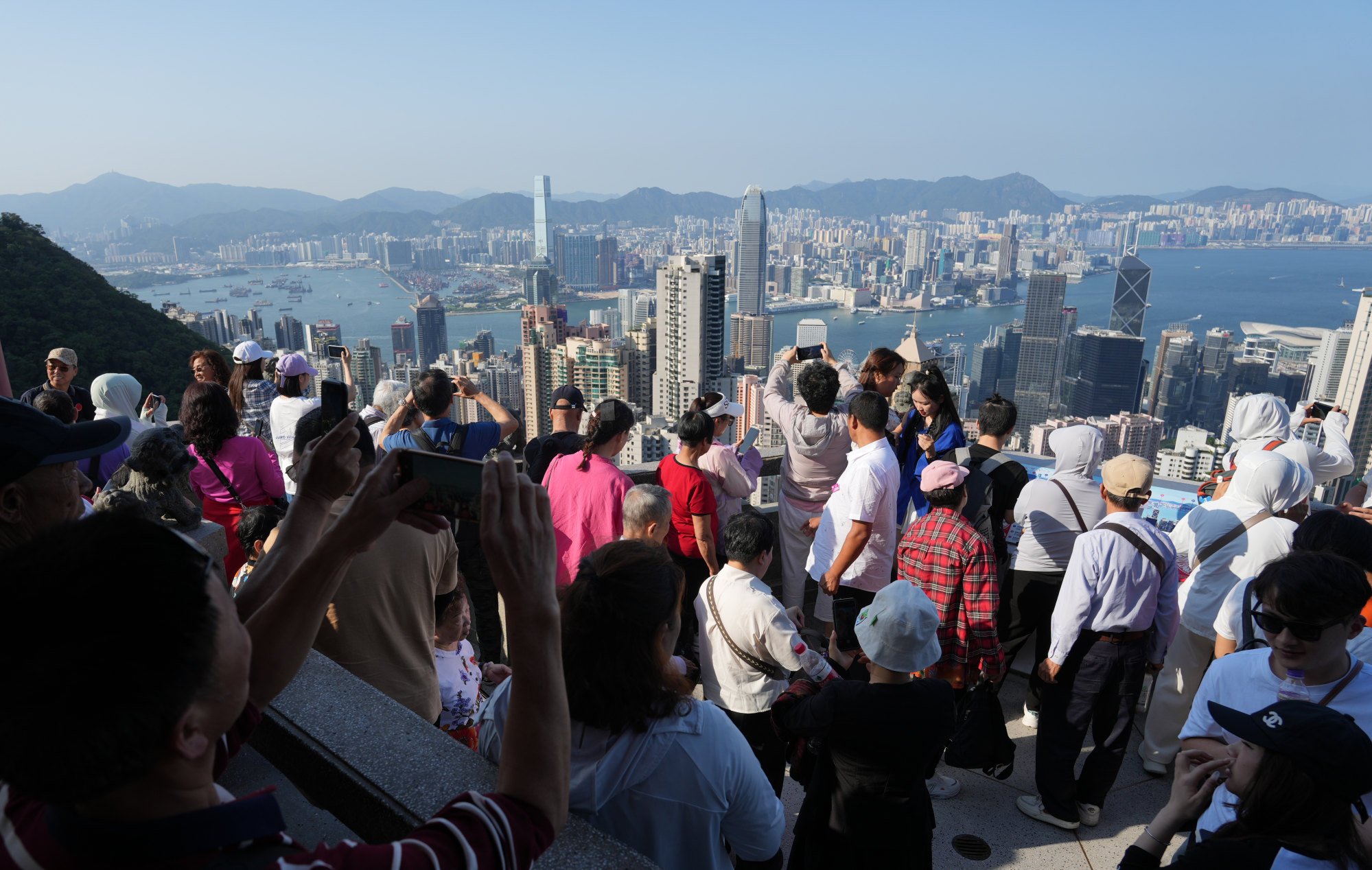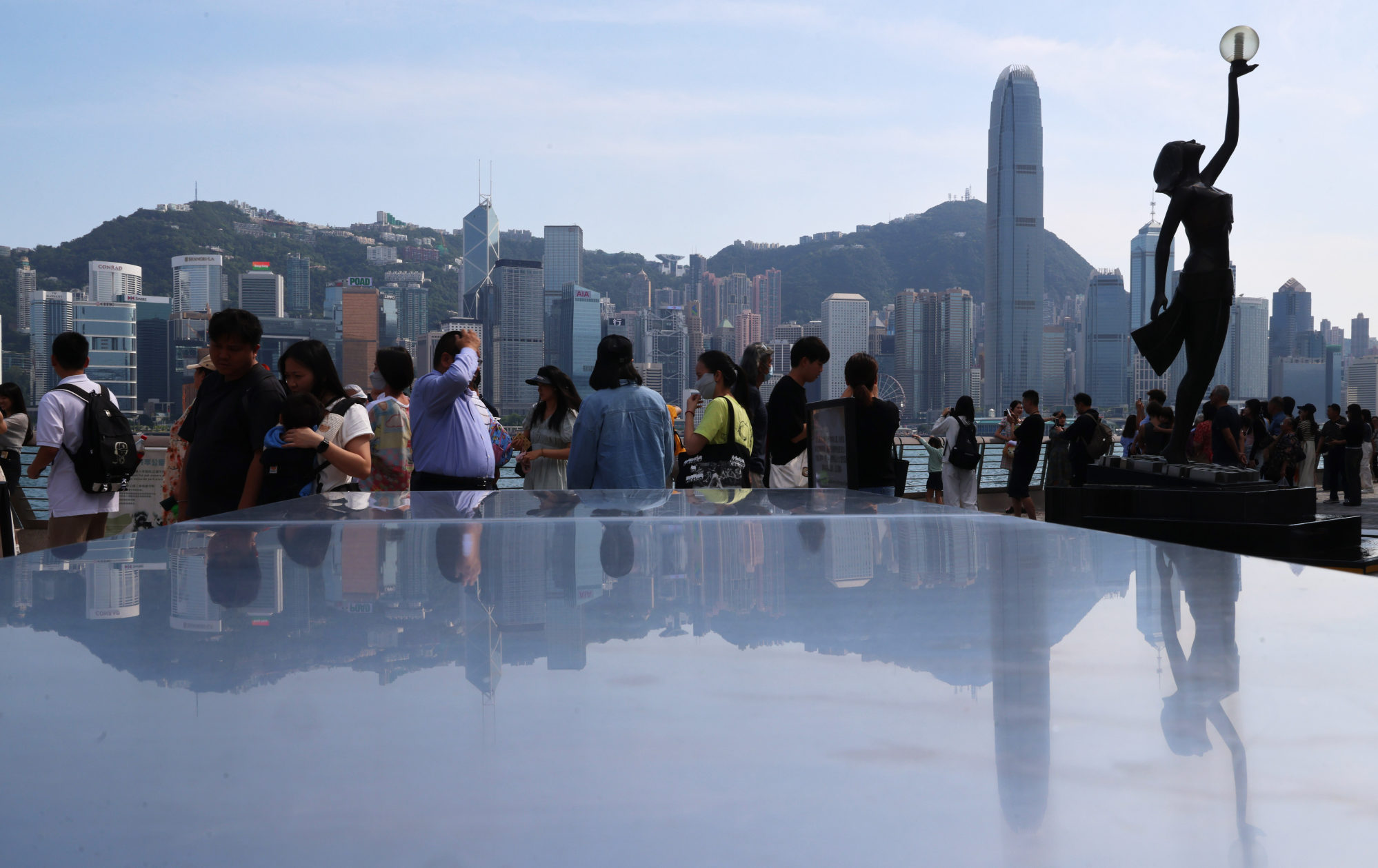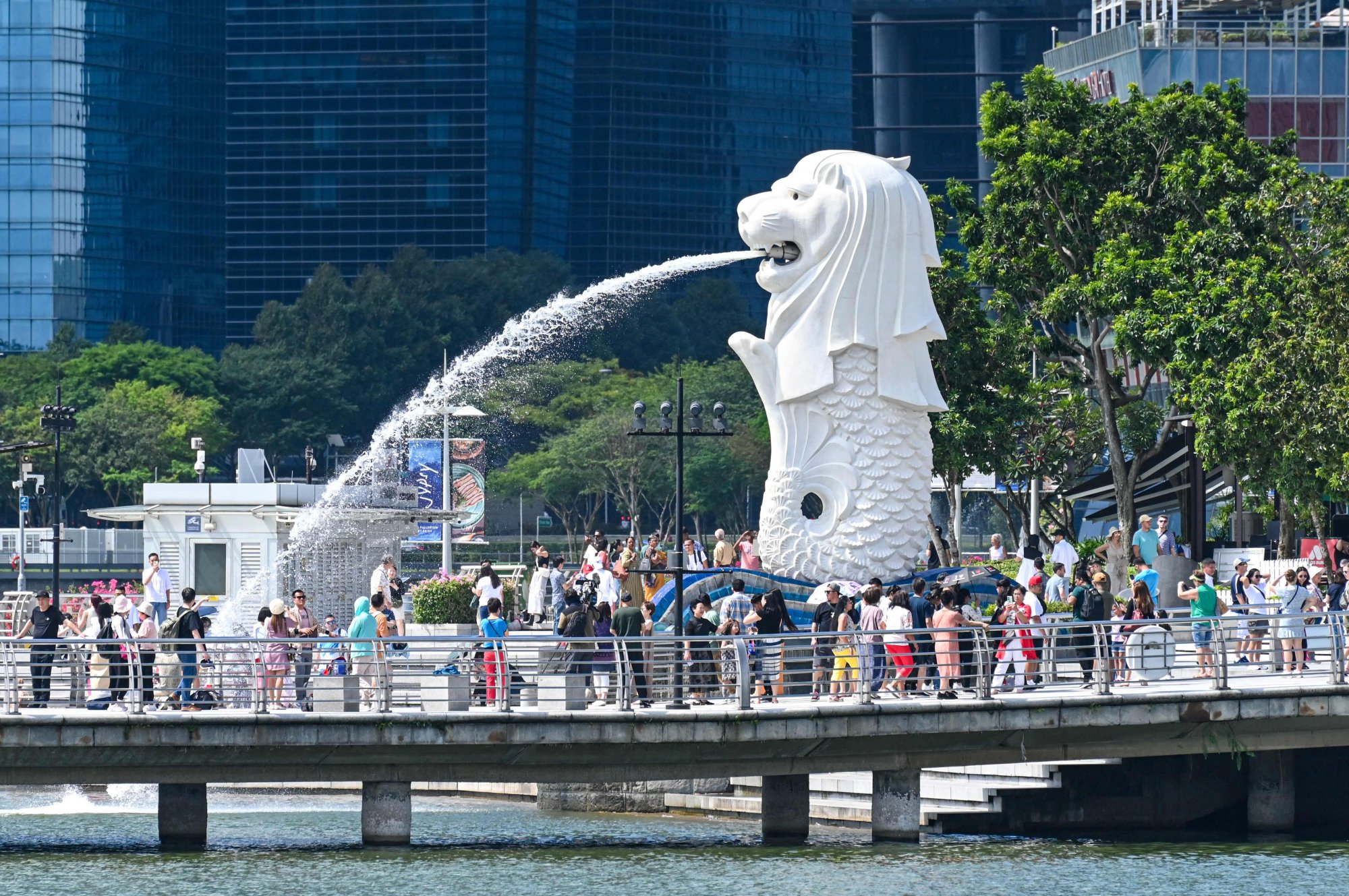Americans Kayla and Aaron Lukas left their home in California earlier this year for a nine-month backpacking holiday across the globe.
Two months into their adventure, the married couple, both 31, have been to Indonesia, Singapore, Malaysia and Thailand. They head to Europe in late May.
Hong Kong and mainland China did not figure in their travel plans.
Do you have questions about the biggest topics and trends from around the world? Get the answers with SCMP Knowledge, our new platform of curated content with explainers, FAQs, analyses and infographics brought to you by our award-winning team.
Kayla, a nurse, said Hong Kong’s history was an attraction and they hoped to visit one day, but they were a little nervous about being there now.
“The political situation makes us a bit apprehensive,” she said. “There is a fear for many Americans that China is not always the safest or easiest to travel.
“Obviously Hong Kong is very different from mainland China, but some reservations still exist.”
Hong Kong authorities in the midst of revamping the city’s tourism strategy have to deal with changes in the profile of visitors, not least the decline in high-spending mainland travellers.
North American and European tourists have been slow to return since Covid-19 pandemic restrictions were lifted last year, and experts suggest the reasons may have to do with Hong Kong’s image in relation to its politics and international relations.
Hong Kong Tourism Board data showed 594,752 visitors were from the United States last year, around half the number who came in 2019.
For Europeans, including those from France, Germany and the Netherlands, only half as many as in 2019 returned. It was worse for those from the United Kingdom with only two-fifths showing up.
The first three months of this year were slightly better, hovering between 50 and 70 per cent of 2019 numbers for visitors from the US, Europe and the UK over the same period.
Tourism Board executive director Dane Cheng Ting-yat said the lacklustre performance was mainly due to the local currency being pegged to the US dollar, making the city more expensive to visit compared with places such as Thailand and Japan.
Industry insiders also maintained that it was normal for long-haul travellers to take more time to return, as their trips needed extra planning.
But such explanations do not square with the experience of Singapore, which is just as expensive as Hong Kong and just as far from Europe and North America.
Despite its strong dollar, the city state was already boasting full recovery in visitors from the same markets in the first three months of this year, with several even surpassing pre-pandemic levels.
So if neither distance nor price was an issue for Singapore, what could be keeping European, British and North American visitors away from Hong Kong?
“There are several factors,” said Clement Kwok King-man, chief executive officer of Hongkong and Shanghai Hotels, which runs the landmark Peninsula in Tsim Sha Tsui. “Hong Kong has received some negative media coverage overseas, which has contributed to a lack of confidence.”

The Peninsula’s occupancy rate for the first quarter of 2024 rose by 7 percentage points over the same period last year to reach 46 per cent, but that was much lower than the 70 per cent occupancy rate in the first three months of 2019.
Kwok said he felt Hongkongers needed to do more to talk up their city if it hoped to bring back visitors from further away.
For example, he said, it was important for locals to remind visitors that with its low crime rate, Hong Kong was safe to visit.
For its part, the hotel brought in a delegation of high-level US travel agents, in partnership with Cathay Pacific Airways and other luxury travel brands.
The 26-person group, who managed more than 10,000 travel advisers in total, were treated to a five-day trip with Hong Kong tourism highlights on their programme, including visits to the M+ and Palace museums, and hiking and yachting outings.
Kwok said he hoped that would lead to more business for the hotel.
‘Seeing is believing’
The city has an uphill task in its charm offensive, given travel warnings by several Western countries after Beijing imposed the national security law in 2020 and after Hong Kong passed its domestic national security bill more recently.
The US issued a “level 2” travel alert, advising Americans to “exercise increased caution” when visiting Hong Kong. It has a “level 3” alert telling citizens to “reconsider travel” to the mainland and Macau.
Canada’s travel advisory website tells Canadians to “exercise a high degree of caution” when visiting Hong Kong “due to the risk of arbitrary enforcement of local laws” even while on transit at the airport.
The UK warns its citizens: “You could be detained or removed to mainland China for some offences under the 2020 national security law. The law can be interpreted broadly and some offences can lead to a maximum penalty of life imprisonment.”
Allan Zeman, entertainment tycoon and tourism adviser to the Hong Kong government, scoffed at these warnings, saying he often received calls from friends overseas asking him: “Are you OK? Why are you still there?”
His response to them? “Really, it’s much safer than where you are in your country, because it’s not safe in a lot of Western countries today.”

Zeman said people around the world continued to have “misconceptions” about Hong Kong and it would take time to correct through word of mouth.
“Seeing is believing,” he said, and visitors had to go home and share their positive experiences.
He said Hong Kong was caught in the geopolitical tensions between the West and Beijing, and the lack of understanding of the city’s “one country, two systems” principle of governance.
Economist Simon Lee Siu-po said Hong Kong may also be experiencing the effects of a number of offices having left the city during the pandemic for places such as Singapore.
The Chinese University of Hong Kong academic cited the city’s strict, zero-Covid policy as a major reason businesses lost confidence. Some also chose to move parts of their operations online.
“I think the government made some mistakes in handling Covid,” he said, recalling his own experience when he travelled to Bangkok two years ago.
He could not return to Hong Kong because of flight cancellations caused by government policies, and ended up going to Singapore to secure another flight home.
He said many business travellers remembered the hard time they had in Hong Kong during the pandemic and preferred to operate in alternative locations they considered more stable.
“It’s not easy to turn around from such a mistake,” he said.
Lee said Singapore had likely benefited from the extra cash business travellers brought with them, as they tended to spend more on the company expense, whereas Hong Kong was left with more leisure visitors likely to choose low-cost airlines and cheap hotels.
According to the Tourism Board, overnight business travellers spent an average of HK$9,301 (US$1,191) per person during their trips to Hong Kong last year, while overnight leisure travellers spent HK$6,939.
Veteran lawmaker Jeffrey Lam Kin-fung, a non-official member of the government’s top advisory body the Executive Council and a committee member of the Hong Kong General Chamber of Commerce, expressed confidence that businesses would eventually return.
“We maintain a huge advantage over Singapore, and that is our access to the Greater Bay Area and in fact, the entire mainland China,” he said.
“These companies still wish to enter the China market through us, and the government is offering a lot of incentives for them to come here, or come back.”
He added with the development of the Northern Metropolis, a new technology and business hub the government is building close to the border with Shenzhen, the city would begin to see more firms return.
He said he had also heard from people who had moved to Singapore that the city state had become “really expensive” and it was less attractive to stay.
“Some of them have kids that have a semester left in school, or have other matters to settle ... but I know many of them never wanted to leave, and are very keen to return,” Lam said.

All the experts the Post spoke to agreed that flight capacity was keeping long-haul visitors from Hong Kong and now, all eyes were on the city’s flagship carrier, Cathay Pacific.
“What happened during Covid, unfortunately, was they decided to fire about 40 per cent of the pilots,” said Zeman, adding that it may not have been the airline’s fault entirely given the city’s harsh Covid restrictions.
Although Cathay was trying to recover its lost manpower, the lack of flights meant airfares remained “very high” compared to Singapore Airlines and other airlines.
“For people to come out from North America, it’s very expensive ... Husband and wife and two kids will cost a lot of money,” he said.
A source familiar with the aviation industry said direct flight frequencies of some Northern American airlines had not yet returned to pre-pandemic levels because of the ongoing Ukraine-Russia war.
Amid efforts to lure more tourists, the government in May announced more than 100 mega events for the second half of the year, hoping they would help bring in 1.7 million visitors for the whole year.
Karl Jensen, an architect from London in his 40s who was in Hong Kong earlier this year for a friend’s wedding, said: “The city has an undeniable energy that I felt as soon as I landed at the airport.
“Ahead of my trip, a lot of friends, even those from Hong Kong, warned me to prepare for the ‘dangers’, but I don’t think it was that much of an issue.
“I think it is this transition period, where nothing is clear, that freaks people out.”
More from South China Morning Post:
- ‘Smile more’: Hong Kong prepares for hospitality campaign by getting service sector and civil servants to be more courteous
- Glittering array of new Hong Kong events lined up as city bids to revitalise economy and boost tourism
- ‘Little’ or mega events? Hong Kong must be more aggressive, ‘make noise’ on global stage in tourism drive, industry says
For the latest news from the South China Morning Post download our mobile app. Copyright 2024.





